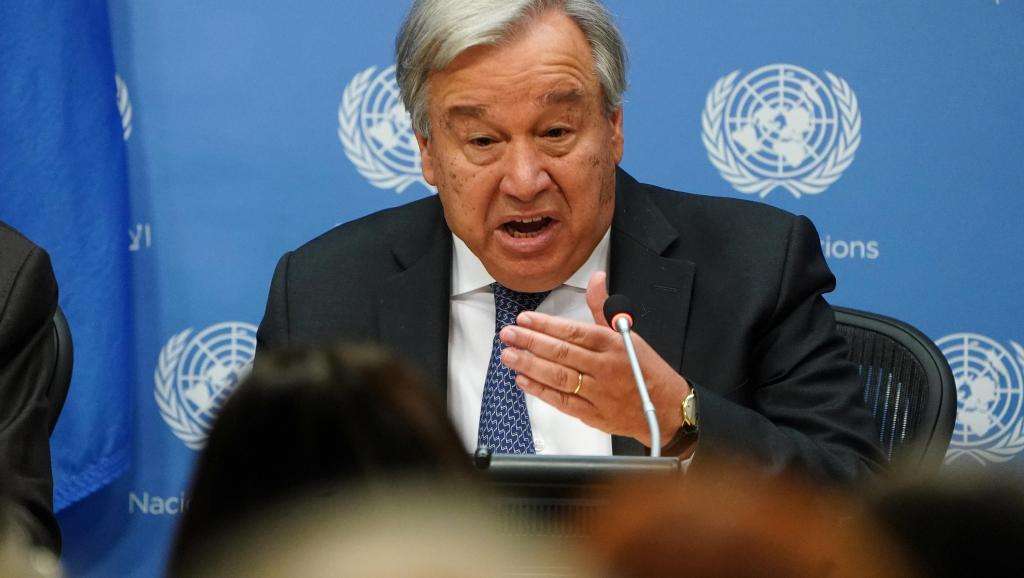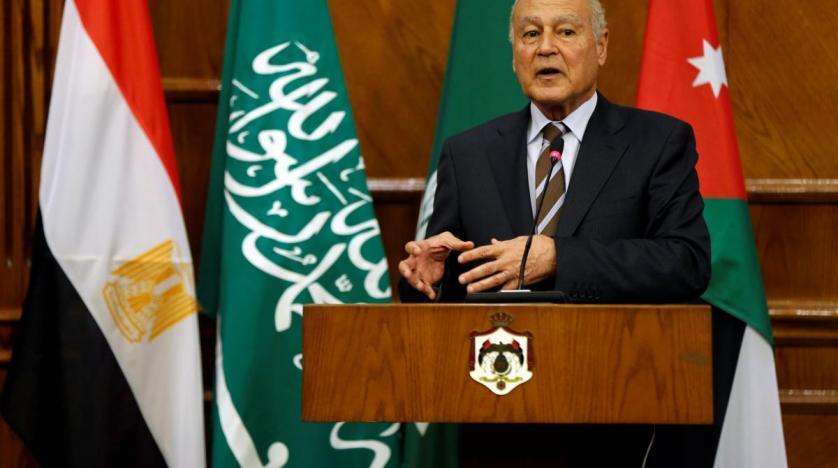The international community rejected the Israeli plan to annex parts of the occupied West Bank. On Wednesday, the U.N. Security Council, with the exception of the United States, refused the Israeli annexation plans.
In the meantime, the Palestinians, who intend to resort to the International Court of Justice, demanded sanctions against Israelis.
During a virtual meeting on the ministerial level, the Secretary-General of the United Nations and the Arab League asked Israel to "abandon its plans", which would "end international efforts in support of the establishment of a viable Palestinian state.”
[caption id="attachment_95779" align="aligncenter" width="1024"] António Guterres[/caption]
António Guterres[/caption]
The Secretary-General of the United Nations, António Guterres, stressed that the goal remains to achieve the two-state vision -Israel, and an independent, democratic, connected, sovereign, and viable Palestine- living side by side in peace and security, within the borders recognized on the lines established in 1967, with Jerusalem as the capital of two states.”
The U.N. position contradicts the United States' plan for the Middle East, which recognizes Jerusalem as the capital of Israel, and stipulates the establishment of a Palestinian state on a small and dispersed area.
The U.S. Encourages Israel on West Bank Annexation
In Washington, U.S. Secretary of State Mike Pompeo responded by saying that Israel’s annexation of parts of the West Bank was “up to the Israelis”, noting that the United States was giving the green light to Israel to embark on the annexation.
During the Security Council session, the majority of speakers cautioned against any annexation.
In a joint statement, seven European countries - Germany, Estonia, Belgium, France, Norway, Ireland, and the United Kingdom - considered the plan "to severely undermine the relaunching of negotiations.”
“Due to our obligations and responsibilities within the framework of international law, the annexation will have repercussions on our close relationship with Israel and we will not recognize it," the statement read, without indicating possible sanctions.
On his part, the Secretary-General of the Arab League, Ahmed Aboul Gheit, said that the annexation would "destroy any prospect for peace in the future."
[caption id="attachment_128608" align="aligncenter" width="838"] Secretary-General of the Arab League Ahmed Aboul Gheit[/caption]
Secretary-General of the Arab League Ahmed Aboul Gheit[/caption]
"The annexation may irreversibly change the nature of the Israeli-Palestinian relationship," said Nickolai Mladenov, U.N. Special Coordinator for the Middle East Peace Process.
He warned that the annexation could "put an end to a quarter of a century of international efforts in favor of a viable Palestinian state."
He added that "An opportunity should be given to diplomacy," calling for a resumption, "without preconditions," of the work of the Quartet, which brings together the United States, Russia, the European Union and the United Nations on the Israeli-Palestinian file, "with a view to finding a way out of the crisis."
Palestinian Foreign Minister Riyad al-Maliki assured the United Nations Security Council that any annexation by Israel to Palestinian lands is a "crime", warning of "immediate repercussions" in the event of the implementation of this project.

The minister added that everyone is talking about a "crossroads", but the problem is that Israel "unfortunately is the driver" and refuses to comply with the "red stop sign" in order to "evaluate the implications of its options," adding that "Israel must realize that any annexation will have immediate and concrete repercussions.”
"Therefore we called on the international community to adopt effective measures, including sanctions, to deter Israel from moving forward with the annexation of Palestinian lands,” he said.
He pointed out that "annexation is not only an illegal act but rather a crime.”
On the other hand, the Israeli ambassador to the United Nations, Danny Danon, said that the Palestinians refused to negotiate with his country, which led to the situation we are currently witnessing.
As of July 1, the Israeli government, headed by Benjamin Netanyahu, should announce its strategy to implement the U.S. plan for the Middle East. It may include Israel's annexation of settlements and the Jordan Valley, which is a vast agricultural plain in the occupied West Bank.












